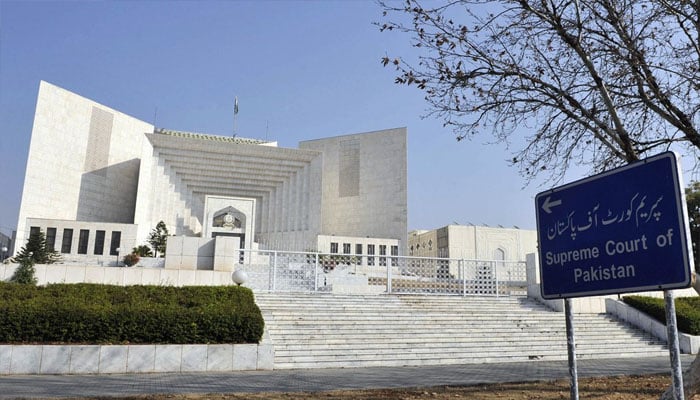ISLAMABAD – The Supreme Court Justice Jamal Mandokhail raised a question during the hearing of the civilian trials in military courts, asking, “How can an individual not part of the Armed Forces fall under the discipline of the Armed Forces?”
The constitutional bench of the Supreme Court, headed by Justice Aminuddin, heard intra-court appeals against decisions of military courts.
Federal government counsel Khawaja Haris argued that the court’s decision on military courts is divided into two parts: one nullifying sections of the Army Act and the other concerning the custody of individuals tried in military courts.
Justice Jamal Mandokhail remarked that the entire case of military courts revolves around Article 8.
He asked, “How can someone not serving in the Armed Forces be subjected to their discipline?” Khawaja Haris responded that the application of discipline would depend on whether the law permits it.
Justice Mandokhail added, “If a person is in the Army, military discipline applies to them. If they work in the agriculture department, then its discipline applies to them. But how can someone unaffiliated with any department be subjected to the discipline of the Armed Forces? Would this not violate Article 8?”
Khawaja Haris stated that under specific circumstances, the Army Act also applies to civilians. He argued that the court does not have the authority to invalidate sections of the Army Act. To this, Justice Mandokhail replied, “If someone merely contemplates incitement, does the Army Act apply to them? Has the Army Act rendered Section 1 of Article 8 ineffective?” Khawaja Haris responded, “Even in military trials, the right to a fair trial under Article 10-A exists.”
Justice Mandokhail further observed, “The highest position in Pakistan is that of the President. If the President’s House is attacked, the trial of the accused would occur in an anti-terrorism court. But if the attack is on Army property, the trial is held in military courts?” Khawaja Haris replied, “This distinction has been made through legislation by lawmakers.”
Justice Musarrat Hilali questioned, “Were the FIR copies of individuals in military court custody not provided? Is legal representation allowed during military court trials? Are all relevant materials given to the accused in military courts?” Khawaja Haris replied, “Yes, legal representation and all relevant materials are provided in military courts.”
Justice Jamal Mandokhail asked, “If a soldier kills their officer, where would the trial be conducted?” Khawaja Haris replied, “The trial for murder would proceed in a common court.”
Later, the Supreme Court’s constitutional bench adjourned the hearing until tomorrow.










